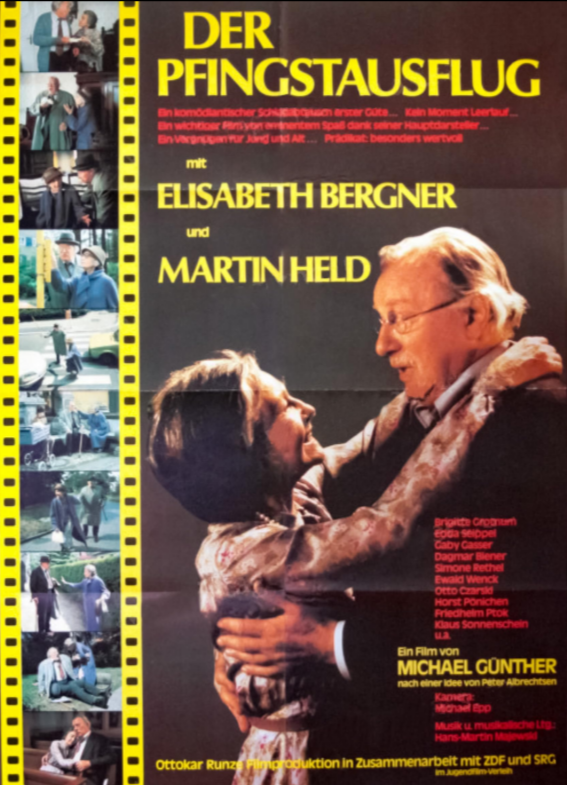“Pardon me sir, can I help you open the jar.”
“Yes please. You are a very strong woman. And kind. You are so kind to notice I needed help. You know I am a mess. I’m simply a mess.”
“Everyone is a mess,” I said. “Some are just better at pretending they aren’t.”
“Everyone might be a mess, but I am lonely. I miss my wife.”
“Would you like us to join you for breakfast?”
“No, I couldn’t be trouble to you with my lamentations.”
“May we join you for breakfast of our own accord?”
“Yes, of course.”
What follows is his account of himself… though it was all told this way, the questions I asked and stories I told would only interfere with Herr Gunther’s story. So I leave them out, knowing full well that I am changing the story. Sometimes the listener is a character in the story. But Herr Gunther would have told it to anyone just the same.
“I am Michael Günther, born on July 16, 1935 in Berlin, Germany. I was an actor by age ten, when the Russian tanks came to save my home from the evil that infected it. We didn’t know then that they would infect us in a different way, but as terrible as a paper cut with lemon juice. Most people know me now as a patron of our opera. If you go there, they will know my name and you will be well treated. Some in Berlin remember me as a famous German director of The Pentecost Outing (1978), Lukas und Sohn (1989) and Diese Drombuschs (1983). You know in May of 1989, the East German Film Society asked me to make a film for them. I said I would not while this blight divided my home city. We were near the wall, on the other side at the time. They told me that this wall would stand until the end of time. That’s what autocrats day when they know the end is near. Anytime the end is near you find yourself saying Forever. Forever is the word you say when you know it is ending. I told my wife, the day before she died that I would love her Forever. She had cancer. I took care of her myself at home with all sorts of doctors and private nurses and coming and going. I could afford anything. Except to make her live forever, so I could love her forever.
The wall came down just six months after the East German Film Society said it would stand forever. That was almost twenty-five years before I told my wife I would love her forever. We were married 51 years. And already I have, because I needed one, I have a new companion. She’s a widow like me, with a pension. She won’t marry me, but I call her my wife. Of course, she isn’t my wife. She’s in Zurich, meeting her second, no her sixth, grandchild. I don’t go because they are noisy. Too noisy for me. So she books me here. And my daughter, and my son-in-law, they come to see me each day. She’s very kind-hearted, my daughter.
My wife, you know, who isn’t my wife. She books me here because I say I love this hotel. But really, when my wife, my real wife who died, when she was alive we traveled all the time to make movies. To Thailand thirty or forty times, Dubai, all over the world. We were in Guatemala when the wall fell and my home city was united again. There again, we needed outsiders, not Berliners to help us remove the cancer. A doctor came for her from Switzerland. But even he couldn’t do it. Remove the cancer. No matter how much I could afford. When she was dying, she wanted to travel. So I booked us here at The Hilton. And we ordered room service. And pretended we were anywhere in the world. It was a nice trip, the last one. My companion, she doesn’t know that. She just thinks I like this hotel. But I miss my wife.”
